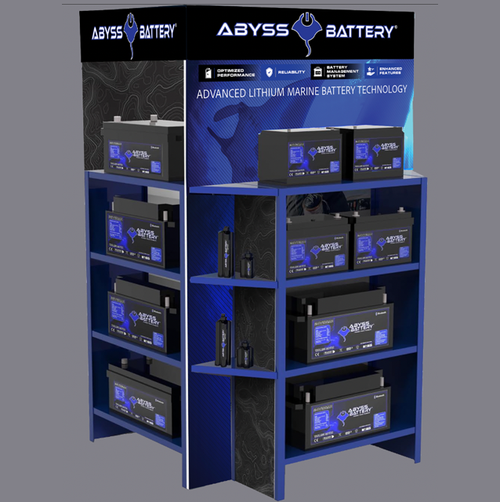Marine Battery Charging Tips
Your boat's battery is the heart of your vessel’s electrical system, providing the power needed for a safe and reliable experience on the water. A well-maintained battery is crucial not only for performance but also for your safety. However, improper charging can compromise the battery’s reliability, often without the user realizing it, potentially leading to dangerous situations.
While charging your boat's battery isn’t complicated, following the right practices can significantly extend its lifespan and ensure it performs at its best. These essential marine battery charging tips will help you optimize your battery's performance and protect your investment.
Fully Charge Between Uses
Regardless of the type of battery you use, it's always beneficial to fully recharge it after every use. Although modern lithium-ion batteries are more resilient to staying at intermediate charge levels than older lead-acid models, charging your battery to full capacity after each use remains a best practice. This ensures that your battery is ready for the next outing and helps maintain its longevity.
Avoid Overcharging
While fully charging your battery is important, overcharging can be harmful and reduce the battery’s lifespan. Some batteries are more tolerant of overcharging than others, but it’s never wise to rely on this. Overcharging can cause long-term damage. To prevent this, consider using a charger with an automatic shutoff feature, which stops charging once the battery reaches full capacity, protecting it from unnecessary wear.
Use the Correct Charger
Using a charger with the proper voltage is essential for battery health. Every battery has a specific voltage requirement for safe charging. Mismatching the charger and battery voltages can lead to inefficiencies, damage, or even failure to charge. Always ensure the voltage of your charger matches that of your battery to prevent these issues and guarantee efficient, safe charging.
Long Discharges for Deep Cycle Batteries
Deep cycle batteries are designed to handle prolonged discharges and are ideal for applications that require consistent, sustained power. Unlike older batteries that could be damaged by deep discharges, modern lithium-ion deep cycle batteries can safely be drained to low charge levels without negatively impacting their lifespan. Therefore, don't hesitate to use most of your battery's power before recharging—these batteries are built to handle it.
By following these marine battery charging tips, you can ensure your boat’s battery is always in top condition, ready for your next adventure. At Abyss Battery, we are committed to helping you maximize the performance of your battery and are always available to answer any questions you may have about our products or battery maintenance.
Useful Links

Angler Sponsorship Inquiry: Now Accepting 2025 Applications!
We are a company that understands how important sponsorship can be for any given athlete and will do everything it takes to support them with their sponsorships whether they are an individual competitor or someone working behind the scenes like a guide or tournament director.
Learn More
Become an Authorized Abyss Battery Dealer or Retailer
We design the best products and right programs that will help to grow your business. Our strong dealer network is one of Abyss' strategic advantages. We believe in building long-term partnerships with our dealers and we seek out those who believe in providing exceptional customer service.
Learn More
ReCharge+ Extended Battery Warranty Coverage
ReCharge+ from Abyss Battery® extends your Free 5-Year Replacement coverage by 2+ Additional years from your purchase date. You’ll get 24/7 priority access to our Battery experts by chat or phone and 50% off on a replacement battery for life!
Learn More
